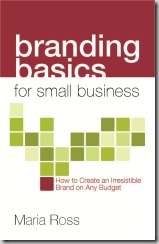We all have had that moment when our mouth moves 3 milliseconds faster than our brain. Often, the heart has bypassed the brain’s filter completely and as you say something, you can almost literally see the words flying out of your mouth in slow motion but can’t stop them and stuff them back in.
As a fiesty redhead, this has happened to me way more times than I care to admit. With age and experience, I can honestly say it’s getting better. But tell that to the sassy 8 year-old who walked out of a TV commercial audition for a new snack cracker only to exclaim loudly to my brother, “God, those were soooooooooo gross!” – with the casting agent and client walking right behind me sporting nervous smiles and shocked expressions. Yeah, not one of my finer. more tactful moments.
But I came to a realization in recent years that there are just some things you will never regret saying in business. You will never want to take them back and, however uncomfortable it may feel at the time to say some of these things, the regret would be in not saying them:
- You’re right. This seems like a great idea and offer. Let me think it over before giving you my answer, ok?
- I adore working with you, too! Let’s just make this official and put it in writing, so I’m sure I can deliver exactly what you’re expecting and we’re on the same page. Protects you and me.
- I’m sorry. How can I make it right?
- That’s a really good way for us to go. Or, another option we may want to consider is….
- It would help me serve you better and ensure I’m delivering on my end if you overcommunicate rather than undercommunicate. I don’t mind multiple emails or calls if it means we can be successful.
- Let’s set up a weekly status call for this project. Sometimes, voice is easier than going back and forth on email.
- I would love to help you with this project but I am just too overcommitted right now and would not be able to give it the attention and care it deserves. Here are 3 other people who may be able to help you out.
- Please
- Thank you
- You’re welcome
- How can I support you in your efforts?
- Great job!
Photo credit: dno1967b on Flickr
Want even less regrets? If you’re in Seattle on April 23, please join me for a special workshop with the Puget Sound Business Journal: Building a Buzz-worthy Brand on Any Budget, 9-11 am. Click here for details (hurry, space is limited!)



